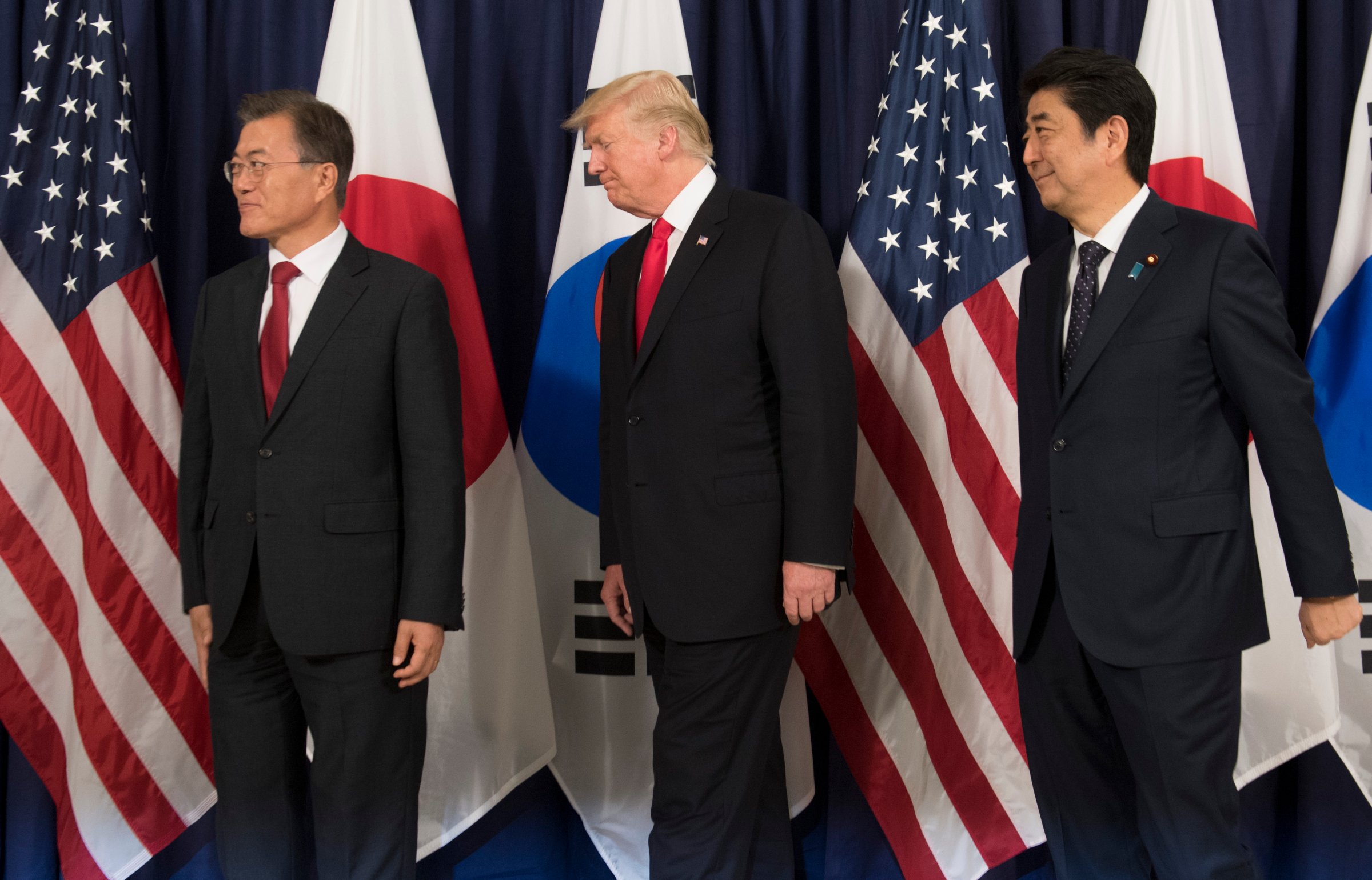
Hachigian is Los Angeles’ Deputy Mayor for International Affairs and the most recent Ambassador to ASEAN (2014-2017).
Our city is an eastern capital of the Pacific Rim, and home to many Asian-American communities, including the largest number of Koreans living outside of South Korea. Asian investment is reshaping our skyline, and tourists from China are the fastest growing group.
On the eve of President Trump’s first trip to Asia, it is clear that our country’s relationship with that region is shifting rapidly. This White House does not appear interested in fulfilling America’s traditional role as the most influential economic, security and political leader in Asia, and China is intent on becoming exactly that.
To ensure that after years of war in the Middle East, America would continue to benefit by close ties to the most populous and economically dynamic region in the world, the Obama Administration pursued a “rebalance” to Asia strategy. The Administration created a post I held: Ambassador to the Association of Southeast Asian Nations (ASEAN). It also broadened our complex relationship with China, including by reaching a groundbreaking climate deal and deepened our ties to allies in region, like Japan, South Korea, and Australia. America also participated for the first time in the East Asia Summit, an annual meeting that brings together leaders of the ten ASEAN countries plus China, Japan, South Korea, India, Russia and others. Not far from here, we hosted a summit of ASEAN leaders for the first time.
Understanding that to be a leader in Asia, and to get the best economic value for America, we needed an inclusive, positive economic vision, the Obama Administration negotiated the 11 country Trans Pacific Partnership. In the region, its conclusion was seen as evidence of America’s commitment and its ability to accomplish Herculean tasks.
Today, while the North Korea threat is a clear priority, the overall U.S. strategy for Asia is murky — in part because the Administration has not hired a permanent Assistant Secretary of State for the Asia-Pacific. Nor has it named a nominee for Ambassador to ASEAN. For his part, Secretary of State Rex Tillerson has called for dramatic cuts to State’s budget and less emphasis on political freedoms and other American values in our diplomacy. Foreign service officers are leaving in droves.
President Trump is not attending the East Asia Summit. Unfortunately, no matter how great his success at other stops on his Asia journey, this will be read by many as evidence of America’s diminished interest or capacity. The Administration also rejected the Trans Pacific Partnership in favor of bilateral trade agreements— but partners are not lining up. Meanwhile, the every five year Party Congress that concluded last week left no doubt that China intends to assume a leadership role in Asia, and globally.
Beijing is far along in these efforts. Together with every country in Asia, China is negotiating the Regional Comprehensive Economic Partnership (RCEP), an agreement to link ASEAN’s trade partners to each other. Whatever the often messy reality on the ground, Beijing’s “One Belt, One Road” initiative is an enticing vision of mega infrastructure hubs that will link half the world, and China’s new Asia Infrastructure Investment Bank (AIIB) is offering billions in infrastructure financing.
No doubt we will hear announcements of multiple valuable deals on President Trump’s trip, and hopefully some of them will come to pass. And China’s rise benefits the United States in many ways. But in the Asia that remains, American companies could be at a disadvantage when bidding against their competitors; all else being equal, regional capitals or companies may choose to curry favor with Beijing, Tokyo or Delhi rather than D.C.
Opposition parties will have far less political space without U.S. embassies doing the hard daily work of talking autocratic governments down from their intolerant tendencies, especially when they sense Washington may not care. China will be able to ignore international maritime law with greater ease if our messages about the importance of rule of law are more readily dismissed in Asia.
Most important, it may be harder for Washington to rally countries around vital initiatives when we need to, like stopping the spread of bird flu before it reaches our shores. These shifts will not be immediate; most of Asia wants America to play a prominent role, and cooperation on security challenges like North Korea and terrorism will continue. But — as many American military leaders have affirmed — economic ties, diplomacy, and development are essential elements of influence. Without them, the stability and prosperity that America has helped to bring to both sides of the Pacific are in jeopardy.
More Must-Reads from TIME
- How Donald Trump Won
- The Best Inventions of 2024
- Why Sleep Is the Key to Living Longer
- Robert Zemeckis Just Wants to Move You
- How to Break 8 Toxic Communication Habits
- Nicola Coughlan Bet on Herself—And Won
- Why Vinegar Is So Good for You
- Meet TIME's Newest Class of Next Generation Leaders
Contact us at letters@time.com